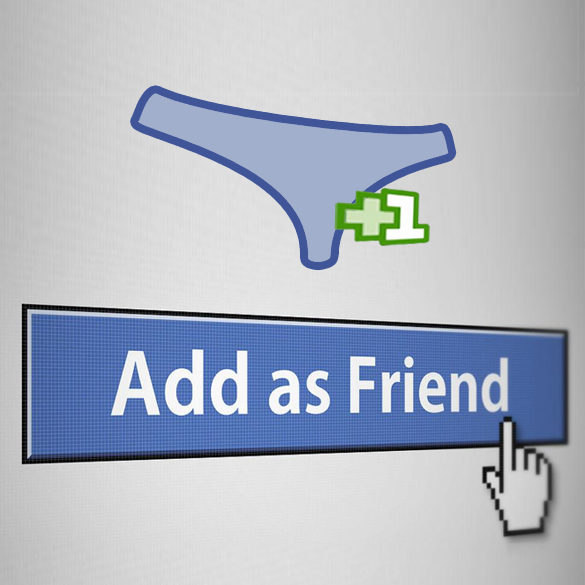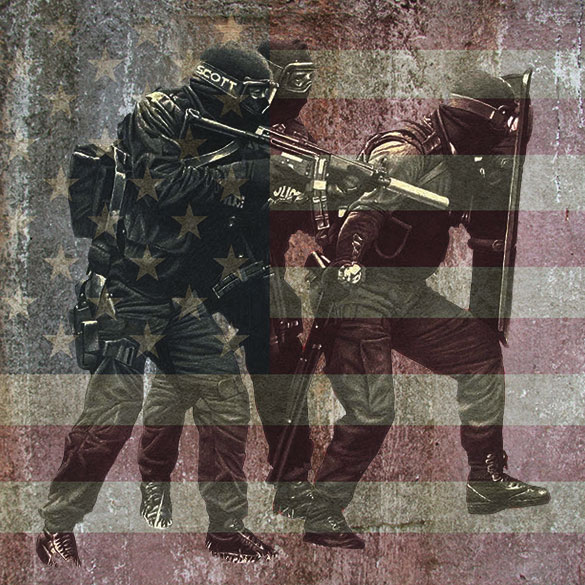The Hunger Games trilogy has evolved from the little book that could (the initial, modest success of the first novel built a spectacular momentum over time) to its status as a cultural and entertainment phenomenon. With tens of millions of books sold, and hundreds of millions of dollars generated by cinematic box office sales, Suzanne Collins’ tale of bad governments, battered psyches, and the unstoppable power of teenage sinew calls for some decoding.
What explains the novels’ appeal to young men and women across the globe (the book has been translated into over two dozen languages)—and to the parents and teachers who have followed the tales with matching enthusiasm?
Interestingly, Collins’ work resists some of the usual narratives for comprehending related dystopian fiction. Laura Miller has claimed, for example, that the juvenile torment experienced in the lethal and capricious competition of the hunger games is analogous to the “viper pit” of adolescence.
But Collins herself has pushed back against this interpretation, insisting that the books are about war rather than a high school struggle for social rank. Indeed, the multiple deaths in the series along with the protagonists’ direct (and successful) foment of political revolution, surface themes that seem out of place in even the most vindictive of food courts or senior proms.
Focusing on war, and how we become aware of and process organized violence, is a useful way of framing the Hunger Games books and movies, but this approach raises as many questions as it answers. After all, Katniss Everdeen, the physical (and emotional) engine of the series, is no pacifist. Her moments of greatest tranquility come while hunting, and she turns to bloodshed to both survive and, ultimately, topple governments.
Collins presents a similarly ambiguous portrait of technology in her work. Technical achievement (in the form of airships, omnipresent television screens, genetic engineering, and force fields) is undoubtedly associated with the tyrannical Capitol that directs the hunger games. But, unlike other dystopian work (M.T. Anderson’s Feed for example), Katniss and her allies turn to technology for survival and even emancipation (Katniss uses scientifically mutated animals against her opponents, and the rebels of District 13 rely on sophisticated weapons and computer skills to resist the Capitol).
With these only partly satisfactory paradigms in mind, this essay turns to a seemingly unlikely source to make sense of the action and pathos in the Hunger Games: the philosophy of Jean-Jacques Rousseau. Rousseau’s critical approach has been described by political theorist Ian Hampshire-Monk as “strange and disturbing” due to its disorienting combination of romantic retrospection and radical rethinking of what makes for a decent and free society. Without claiming any overt influence by Rousseau on the Hunger Games oeuvre, what follows is a sustained case for gaining insight into Collins’ own “strange and disturbing” world by picking up on themes, anxieties, and aspirations set out over two and half decades ago by the French philosopher.
Rousseau’s Discourse on Inequality begins by asking us to imagine humankind “in the embryo of [the] species,” stripped away of the “artificial faculties” produced through a long succession of human invention, culture, and socialization. The result is an animal well-adapted to the world and easily able to satisfy its needs. Humans in their “original” condition are vigorous, content, and largely asocial. Two basic instincts grip individuals in the “hands of nature” and regulate their conduct. First, we possess an impulse for self-preservation, an interest in our own well-being. Second, we have a sense of compassion, a natural aversion to seeing others suffer.
Overall, these circumstances leave humans in a rather enviable state: they are focused on the present, their appetites are easily satisfied, and whatever physical or mental differences exist between people are insignificant—both because our interactions are limited and since there are no social mechanisms (such as laws, customs, or hierarchies) to turn these differences into enduring obligations or sustained inequalities.
This landscape contains a number of features also found in Katniss’ home, District 12 (one of the thirteen geographic-political units that comprise the land of Panem). In the first film and book of the series, the narrative begins with Katniss leaving her battered and impoverished neighborhood to enter the woods, as a kind of ersatz “state of nature.” She hunts, acquires food, and enjoys the sensual pleasures of wild blackberries, “fish iridescent in the sunlight…a blue sky and soft breeze.” Like Rousseau’s original humans, Katniss’ initial needs are few and readily met. The forest provides the one setting in which Katniss is “actually happy.”
Indeed, Katniss has little need for most elements of developed human culture (“I rank music somewhere between hair ribbons and rainbows in terms of usefulness” she tells Rue, one of her arena allies). Her early declaration that she “never want[s] to have kids” is consonant with Rousseau’s observation that pre-societal humans have no families and little regard for the future.
Rousseau’s state of nature is short on human interaction, and in this setting our freedom and self-realization are essentially synonymous with our independence from others. That said, we have a capacity to recognize ourselves in others which serves as the germ for the sentiment of compassion. Consistent with this portrait, critic A.O. Scott has identified Katniss as “a fundamentally solitary kind of heroine” who recoils from emotional connections with her mother, and (until the very end of the third novel) avoids pair-bonding with either of her love interests, Peeta and Gale. Part of Katniss’ allure to readers is her fierce autonomy. When Katniss recalls Peeta’s charity towards her (he provides a loaf of burnt bread when Katniss is a starving child), she expresses discomfort at this entanglement. “I feel like I owe [him] something, and I hate owing people.”
Katniss is not an island, of course, and one of her distinctive traits is her capacity for compassion. The Hunger Games film and the book portray her hesitation in shooting a deer as part of her woodland hunt. As the book puts it, “[m]omentarily, I’d felt a pang at killing something so fresh and innocent. And then my stomach rumbled at the thought of all that fresh and innocent meat.”
Later, once the bloodbath of the games has begun, Katniss evinces similar sympathy for several of her opponents even though they are locked into a zero sum struggle of life and death. Thus, she takes a (decidedly non-pragmatic) break in the action to give the slain Rue a proper burial and ceremony of remorse. Later, when given an opportunity for a clear shot at “Foxface,” she holds back, allowing her adversary to escape into the woods. In these ways, Katniss’ impetuous impulse to aid the vulnerable captures Rousseau’s “compassion that hurries us without reflection to the relief of those who are in distress.”
So there we have it: in both Rousseau’s state of nature and in the temporary oasis of the District 12 woods, we find sustenance, minimalism, and harmless self-regard (leavened by a sentiment connecting us to others in pain or need). Rousseau’s dreamy rumination that we might have avoided all our contemporary ills if “we had adhered to the simple, unchanging, and solitary way of life that nature ordained for us” parallels Gale’s suggestion that Katniss should “[l]eave the district. Run off. Live in the woods” and thereby avoid the horrors of the games and the society that condones them.
But neither Rousseau’s “natural” men and women nor Collins’ characters avoid the degradation and misery of civil society. In Rousseau’s account, increasing interaction between humans and their eventual settling into discrete regions promotes the formation of families and communities, and with them, reason, cooperation, technology, culture, and language.
Our increasing intercourse with and dependence on others causes us to regard our self (and our needs) through the screen of social expectations. We compare ourselves to others, we recognize and cherish values (such as beauty or wealth) that are inherently relational, and, in general, we turn our attention outwards, towards manufactured, complex, social desires rather than straightforward, instinctual needs. Our rudimentary hunger for food, sex, and rest is replaced with the hunger for approval, the first stirrings of pride (a sense that our individual attributes are better and more valuable than others’), and our “burning desire to be talked about.” As Rousseau famously summarizes, “the Savage lives in himself; the sociable man, always outside himself, is capable of living only in the opinion of others.”
Among other consequences, this makes us insecure and jealous, and causes our natural compassion to weaken—since those around us now stand as potential competitors rather than as extensions of our own humanity. Indeed, for the first time, we become capable of (and eager for) vicious, vengeful punishment, and harming and oppressing others as a way to secure our own status. We develop a “vile propensity to injure one another” deliberately. We (and, in particular, a class of the ambitious and rich) invent rules and laws to justify reducing most of “mankind to perpetual labor, slavery, and wretchedness.”
Moreover, Rousseau contends, as our natural, limited biological needs are replaced with social, and potentially unlimited psychological wants, we develop a taste for “stimulating and gratifying our appetites and our senses” with indulgent and even harmful preoccupations, such as the “over-elaborate foods of the rich, which inflame and overwhelm them with indigestion.” We develop a “multiplicity of new wants” and celebrate this excess with “insolent pomp” even as many of our compatriots suffer shortages of food and other basic needs.
In sum, Rousseau contrasts his picture of the state of nature with a vice-ridden, interdependent, restless, and competitive civil society, in which a ruling elite attempt to enhance their self-worth at the expense of others.
Many of these same threads are woven throughout the plot and styling of the Hunger Games trilogy—notably in four important and discrete contexts. First, Collins’ depiction of the twelve districts (and their relationship with the Capitol) reflects the harmful and asymmetrical dependence of humans in civil society. In the Districts, just as in Rousseau’s account, the vast bulk of humanity is engaged in ceaseless and unsatisfying toil to serve a privileged minority. In place of the natural satisfaction of wants found in Katniss’ woods, Collins offers the perversion of District 11, in which hungry workers grow crops but are whipped if they try to consume them. They must instead send this bounty to the insatiable Capitol.
A second embodiment of Rousseau’s critique of civil society can be found in the hunger games themselves. The very juxtaposition of “hunger” (a human impulse which can be simply satisfied) with “games” (a competitive and social contest) effectively captures Rousseau’s sense that our humanity and wants become distorted in contemporary social orders. As Collins explains, the games serve simultaneously “as a festivity, a sporting event pitting every district against the others” and a humiliating and “torturous” form of vengeance for the past rebellion of the Districts.
Even the purportedly positive traits associated with the games (a “pageant of honor, courage and sacrifice”) remind us of the prideful and other-regarding attributes that Rousseau associated with human suffering, and how we have been distanced from our original, natural selves. When told by her sister that she is “beautiful,” Katniss scoffs, objecting that she looks “nothing like myself.”
In a similar vein, after Katniss volunteers to be one of the warriors in the games, her “team” fawns over her, sculpting her appearance, and draping her in an elaborate costume. They gush that “we are all anybody’s going to be talking about” echoing Rousseau’s notion that the “burning desire to be talked about” is a prime mover of civilized men and women. After Katniss’ stylists clean off her grime, trim her nails, and remove “any last bits of hair” on her body, she is symbolically removed from her natural, “primitive” condition and pronounced ready for prime time. “You almost look like a human being now!” one of her handlers exalts.
Collins provides perhaps the ultimate contrast between the self-sufficient Katniss of the woods and the dependent and weakened creature of civil society when she is introduced into the brutality of the Capitol’s staged combat. Katniss is told by several of her mentors that her survival depends not so much upon her natural skills, but her ability to curry favor with the privileged spectators of the games. Thus, Katniss pretends to exhibit amorous affection for her District 12 colleague, Peeta, in order to play to the audience. The viewers favor her budding romance and support Katniss by sending her a bowl of soup and other gifts. Rousseau’s words reflect Katniss’ experience; in the hunger games, it becomes “the interest of men [and women] to appear what they really were not…[and they become] perpetually employed in getting others to interest themselves in [their] lot.”
The Panem Capitol serves as a third important location where we find echoes of Rousseau’s civil society. For example, one of the signature features of the Capitol is the physical and moral artifice of its denizens. Collins tells us that the citizens of the Capitol have gold eyelashes, implanted whiskers, “pea green” dyed skin, and blue hair. Men and women alike are surgically altered to appear beautiful, and wear garish lipstick and elaborate costumes—all at great expense. The opulence of their food is literally sickening to Katniss, who moves from consuming squirrel and other utilitarian fare in District 12, to consuming a lamb with plum sauce on the Capitol’s bullet train—a dish so rich that she becomes ill. It is a scene that recalls Rousseau’s warnings about the “over-elaborate foods of the rich” and their effects on our well-being.
The problems with the Capitol extend beyond these superficial trappings to the bankrupt values that undergird them. In addition to jockeying for power and social distinction, the Capitol’s citizens are absorbed by the hunger games in which contestants “die for their entertainment,” a description reminiscent of Rousseau’s claim that the wealthy in society develop an appetite for the brutal subordination of others. As Rousseau explains, our rulers are “like ravenous wolves, which, having once tasted human flesh, despise every other food and thenceforth seek only men to devour.”
Both Peeta and Katniss worry about whether they will come under the sway of Capitol values and be transformed. Peeta expresses his desire “to die as myself.” Katniss is initially praised by one of her handlers for overcoming the “barbarism” of her District 12 roots, but once the games are over, and Katniss returns to her home, to the forest, and the hunt, she begins “transforming back into myself.”
Rousseau’s trenchant critique of civil society can be trained to a fourth and final aspect of the Hunger Games trilogy. At the conclusion of Mockingjay, the last book of the series, Katniss and her band of rebels invade the Capitol, defeat the despotic president of Panem, and are poised to help install President Coin, an ostensible ally, as the new leader. But, over the course of the final, frantic chapters of the book, Katniss learns that Coin is responsible for killing children (including Katniss’ sister) as a means of inflaming the rebellion, dividing the Capitol, and securing the new regime (headed by Coin herself). This ruthlessness is presaged by Coin’s support for instituting a new set of hunger games, which would pit the children of the Capitol’s leaders against one another in mortal competition. While Katniss nominally votes in favor of this act of vengeance, her heart is with Peeta, who objects to the inhumanity of the games.
Katniss’ subsequent decision to slay Coin is triggered by more than the new President’s “ends justify the means” brutalism—it is brought about by Coin’s lack of pity and compassion. As Rousseau tells us, “compassion is a natural feeling, which, by moderating the violence of love of self in each individual, contributes to the preservation of the whole species.”
For Rousseau and for Collins, this basis for solidarity, this capacity to see ourselves and our own interests in the welfare of others, is not just a trait of our unadulterated humanity, but it is a vital pre-requisite for a fair, legitimate, and functional political and social order. In our own era of hyperpartisanship, when the loyalists of different parties see their agendas as deeply oppositional, recapturing this sense of commonality speaks not only to an enduring cultural yearning but to a political imperative of our time.
—
Bruce Peabody is a professor of political science at Fairleigh Dickinson University in Madison, New Jersey. He is currently writing a book about American heroism.


